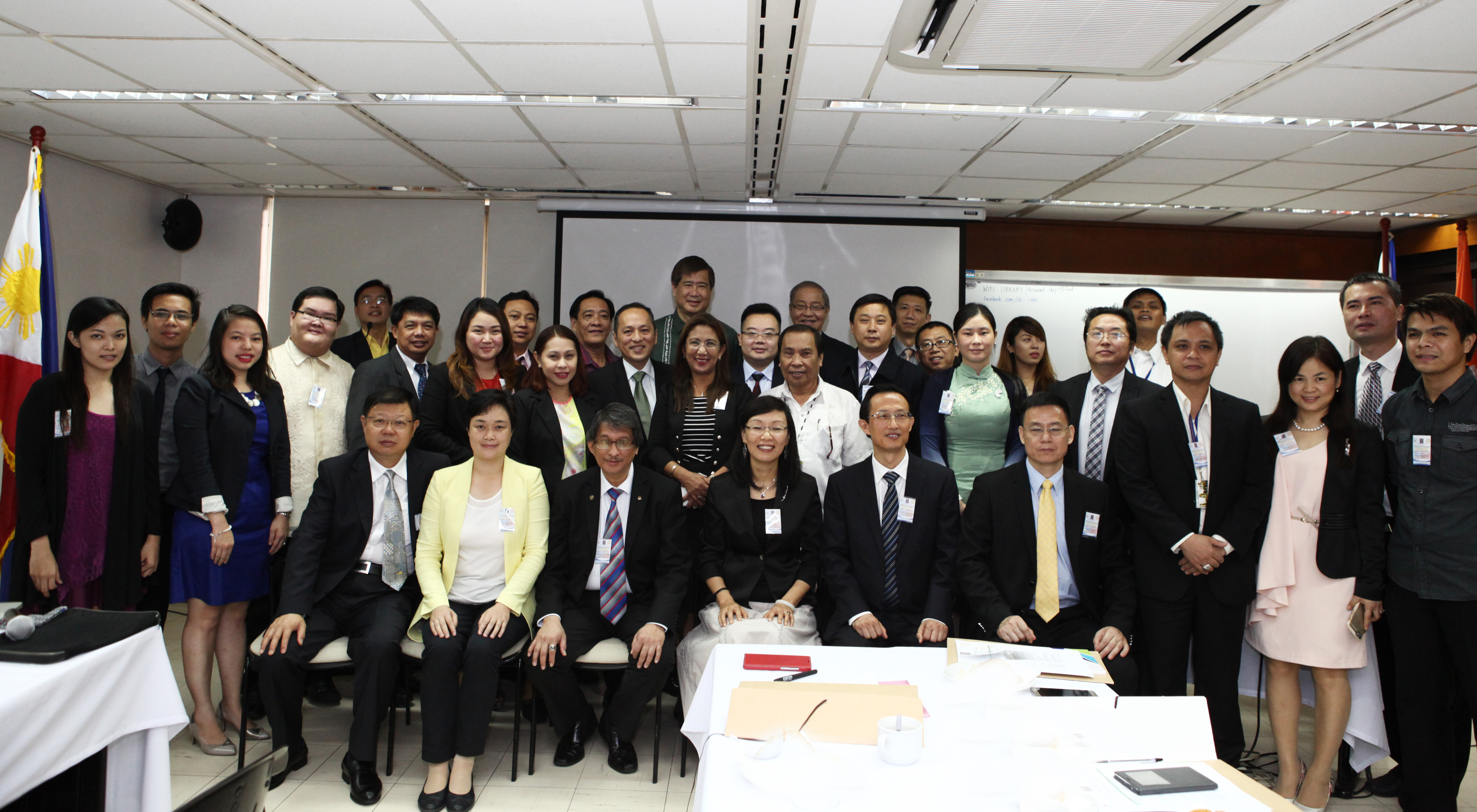
© Asia Pacific Pathways to Progress Foundation Inc.
Photo shows the organizers, and Chinese and Filipino representatives to the event Sustainable Communities: Developing Dialogues for Local Governance
PASIG CITY, PHILIPPINES – Last November 13, 2015, the Development Academy of the Philippines (DAP), Department of Foreign Affairs (DFA), Embassy of the People’s Republic of China, Chinese People’s Association for Friendship with Countries (CPAFFC), Philippine Association for Chinese Studies (PACS) and Asia Pacific Pathways to Progress Foundation Inc. (APPFI) co-organized a policy dialogue among local executives from China and the Philippines on Sustainable Communities: Developing Dialogues for Local Governance. The event was a brainchild of Undersecretary and APEC pointperson Laura del Rosario of the Department of Foreign Affairs with Dr. Carlos Tabunda Jr, Executive Fellow of DAP, as a project coordinator.
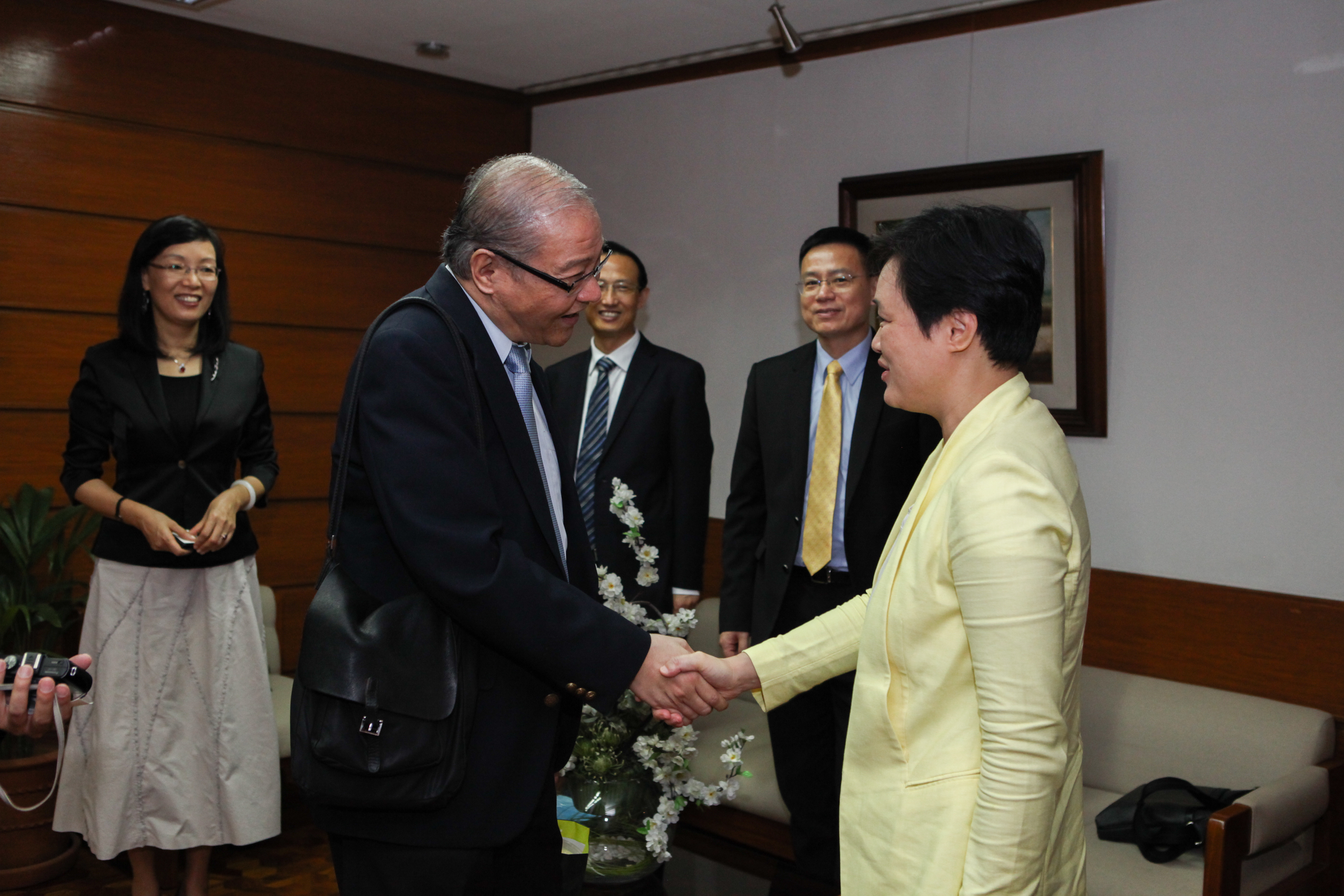
© Asia Pacific Pathways to Progress Foundation Inc.
PACS President Chito Sta Romana welcomes the Chinese delegates upon their arrival at DAP. In the photo is CPAFFC Vice President Lin Yi, Vice Mayor Zhan Wangmin of Huanggang City, Vice Mayor Ding Feng of Jinjiang City, and Mayor Liu Ruiying of Dexing City
DAP President, Antonio Kalaw Jr. and CPAFFC Vice President, Lin Yi gave opening remarks. Both recognized the timeliness of the dialogue, which was held only a few days before the APEC 2015 Summit. They acknowledged the value of establishing sustainable communities, considering urbanization to be one of the pillars that support APEC economies. The dialogue was intended to be a sharing of experiences on how city managers from both countries address problems facing urban populations such as pollution, waste management, delivery of basic services, and traffic, among others.
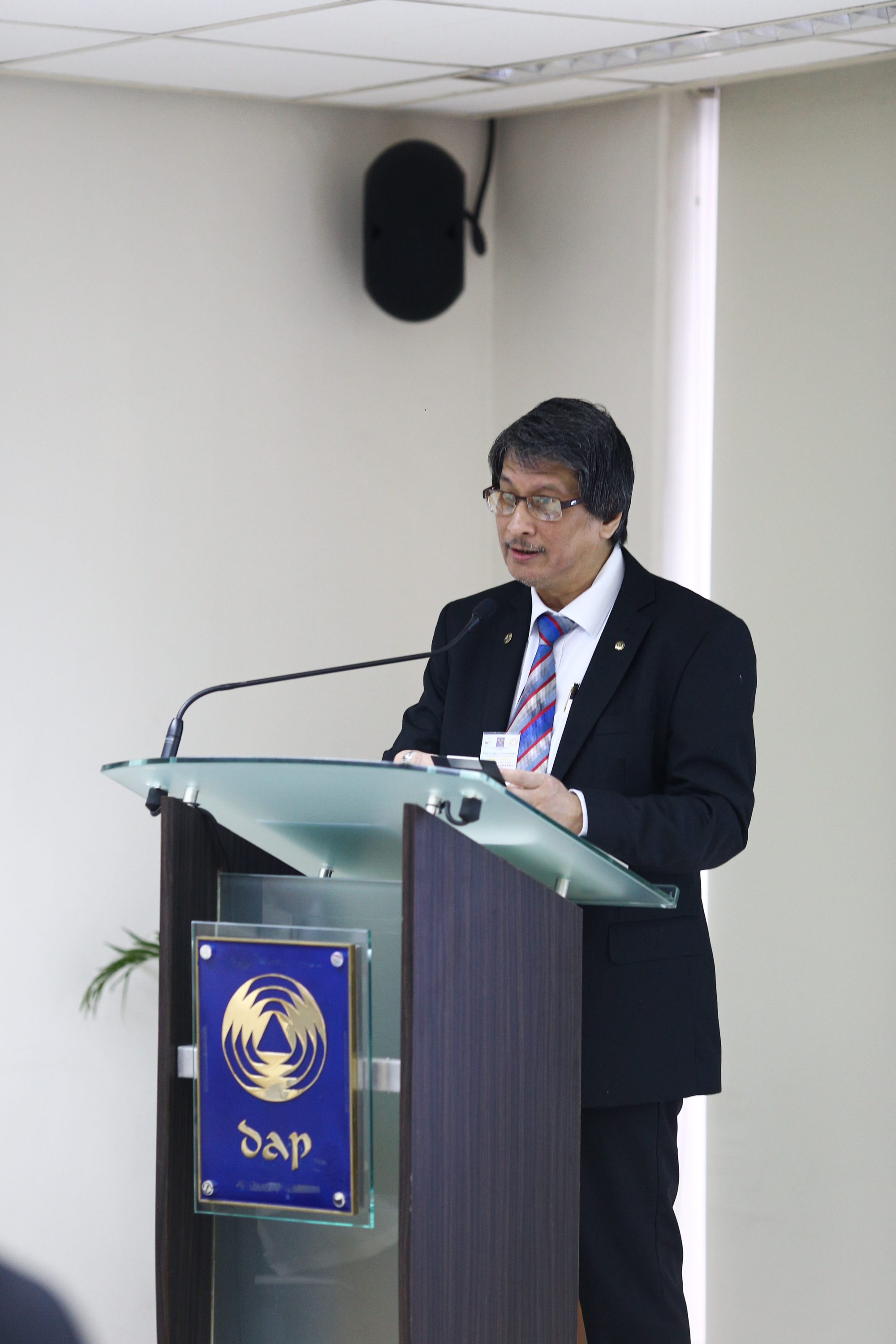
© Asia Pacific Pathways to Progress Foundation Inc.
DAP President, Antonio Kalaw Jr. welcomes the Chinese delegates and briefly speaks about his experiences in China and his hopes for the dialogue to establish and deepen bilateral relationships between Filipino and Chinese cities.
The first discussant was Vice Mayor Zhang Wangmin of Huanggang City, Hubei Province, who spoke about water supply. Huanggang City currently has 20 waterworks facilities with a daily water supply capacity of 72.5 tons, servicing 1.6948 million consumers and a water supply network stretching 1,905 kilometers. The city center supply alone reaches more than 30 square kilometers and a population of over 400 thousand. Huanggang’s strategy involves protecting tion of the water source, optimizing the flow of water treatment, upgrading the service function of water supply facilities, using a real-time monitoring system and strengthening emergency management. To adapt to environmental change and deal with natural disasters, Zhan said Chinese cities should be like sponges -- striving, to be able to collect water, save it for future use, clean it, and recycle and reuse it.
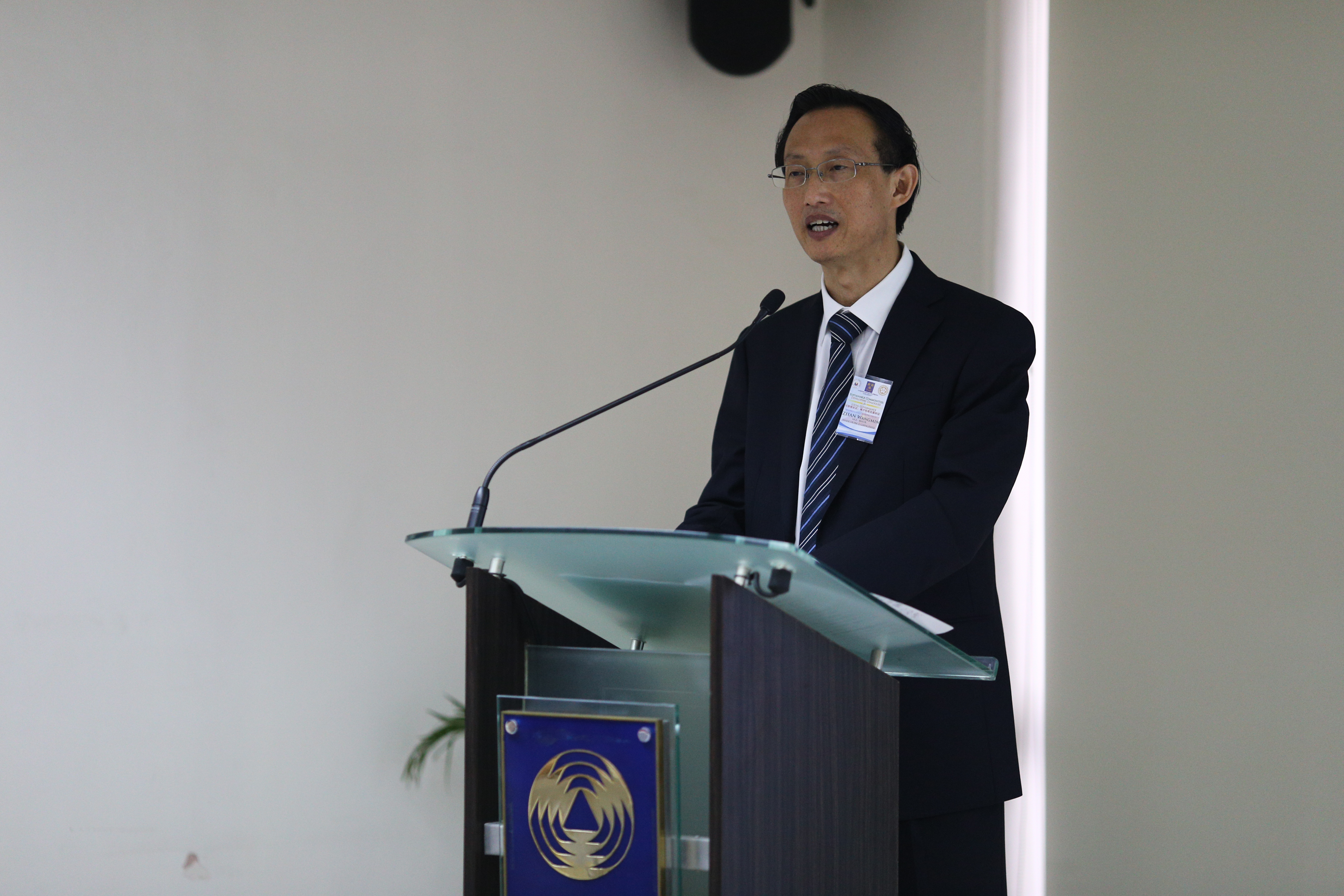
© Asia Pacific Pathways to Progress Foundation Inc.
Vice Mayor Zhan Wangmin discusses Huanggang City's management of water supply.
Mayor Liu Ruiying of Dexing City , Jiangxi Province discussed mining waste management. Dexing is located in in the junction of Jiangxi, Zhejiang and Anhui provinces. It is rich in natural resources, surrounded by a beautiful environment of mountains and a lake, and is known to be rich in copper deposits. Copper, gold and other minerals have been the biggest source of trade for the city and Dexing City even tries to turn mining waste into treasure. They execute a comprehensive recycling program of these mine tailings as construction materials, significant because it not only saves money but also helps in taking care of the environment and lessens the use of soil and land for construction. Reuse of this waste has been very importantfor them and Mayor Liu discussed the extensive research Dexing City does on how to save and utilize the natural resources, on which the city’s economy depends. They partnered with a Canadian company learn how to recycle tailings, creating a network, training a lot of people using scientific methods and technologizing the processes to promote development. This way, they were able to improve the economy for the benefit of the whole community. In its efforts to establish a green ecology, Dexing City strives for balance between tradition and innovation, the ancient and modern, development and protection and attaining a harmonious relationship between man and nature.

© Asia Pacific Pathways to Progress Foundation Inc.
Mayor Liu Ruiying explains how mining waste management has helped Dexing City's environment and economy.
On his part, Vice Mayor Ding Feng discussed how they provide efficient and quality public service in Jinjiang City, Fujian Province. In Jinjiang, the government, enterprises, and the public form the triangle of a virtuous circle. Enterprises lead in economic development while the government provides services. The enterprises can’t do well without the good services offered by the government. If business is good, enterprises can pay more taxes to the government, which then uses the money to improve people’s livelihood, which benefits the public. In turn, the public supports the government and the development of the enterprises. Mayor Ding highlighted the five key areas of their public service practice. First is, addressing the needs of the enterprises and the public. This is done with the government and enterprises working closely and cooperatively, making decisions and providing services for the needs of the enterprises and the public. Second, they adhere to open, inclusive and integrated development, coordinating the development between urban and rural areas, and regarding the city as a whole. Everyone gets equal treatment, regardless of occupation or whether one is a local or a foreigner. Third, they strive to provide high quality platforms which are: 1. a livable city through a new type of urbanization, 2. industrial clustering and 3. support for entrepreneurship and innovation. Fourth, they keep up with the times by. innovating their approaches to social governance, actively adapting to the requirements of modern city management in the information age. And lastly, they streamline the administration and delegate government powers in order to improve approval services. A one-stop "government affairs supermarket" has been set up to gather the administrative review items and public service items scattered in various departments. This has made Jinjiang one of the places with the highest work efficiency in China. Jinjiang is known as the "Capital of Brands" in China, providing first-class services for investors and featuring great advantages in manufacturing, Vice Mayor Ding explained.
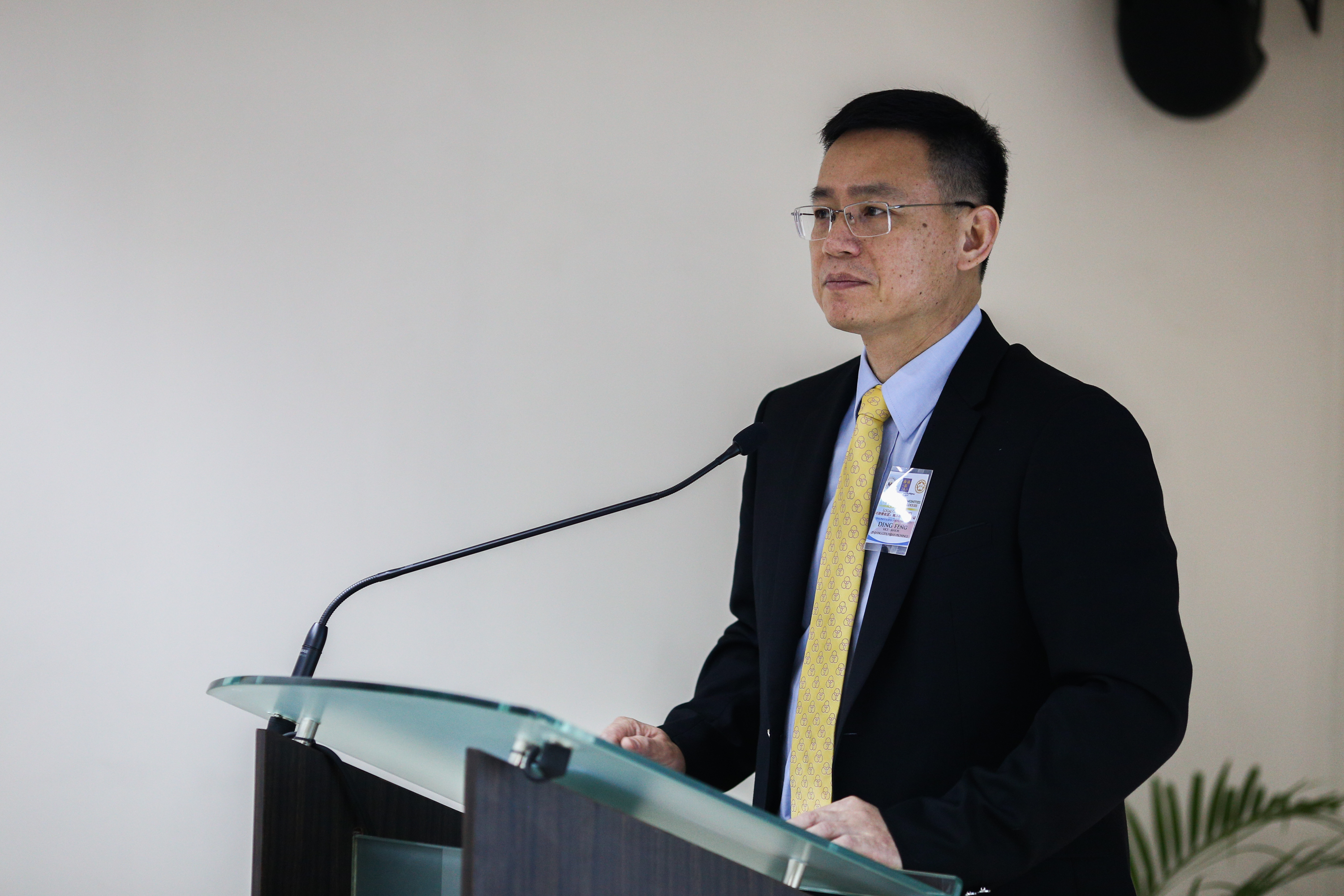
© Asia Pacific Pathways to Progress Foundation Inc.
Vice Mayor Ding Feng discussing how they provide efficient and quality public service in Jinjiang City, Fuijian Province.
Mayor Wu Dongsheng of Tianhe District, Guangzhou Province discussed the Community Grid system that their local government employs to manage their city. Efforts were made to improve the social governance system based on grid and information technology; relying on rules, eliminating information silos to improve the urban governance structure, system and capacity. In the grid-based governance system, there is “one city, two tiers of government, three tiers of management, four tiers of network and five tiers of grids.” They divide the city into different grids, to consider the necessary issues and services to be aptly provided in these grids. Mayor Wu discusses how they implement this system by building an efficient organizational structure, establishing a full-coverage network, setting up a full-time team dedicated to grid management, establishing a shared information system, and establishing an efficient, standarized system through inspections and different mechanisms.
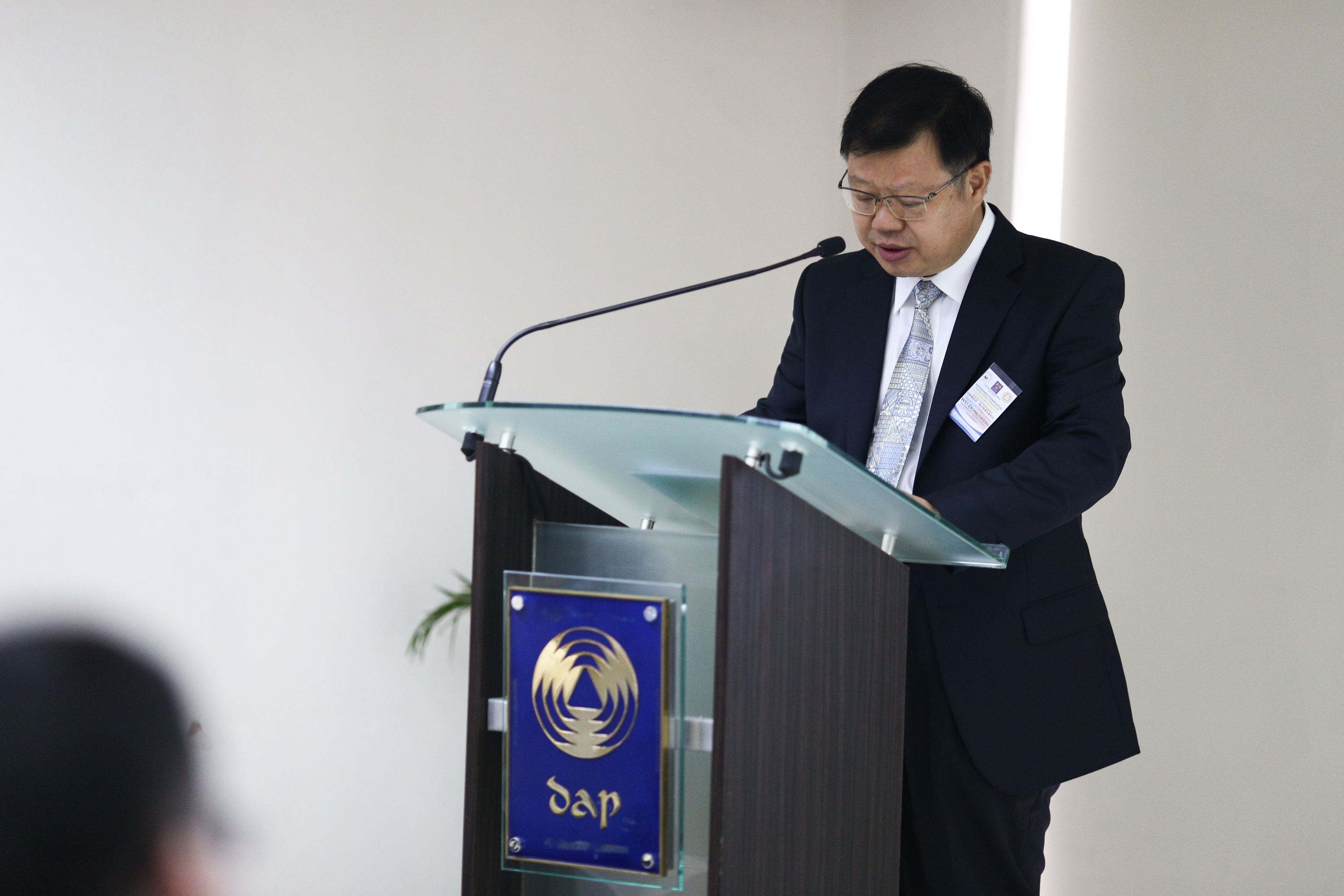
© Asia Pacific Pathways to Progress Foundation Inc.
Mayor Wu Dongsheng of Tianhe District talks about the system that their local government employs to manage their city.
Aside from sharing good practices, all four presentors welcomed cooperation and possible partnerships with Philippine local executives for the development of different sectors in their cities such as mining, trade, agriculture, marine industries, tourism, culture, and etc. The possibility of establishing sister-city agreements and of China hosting Filipino mayors next year was discussed.
The Philippine participants included Mayor Clara Espiritu-Reyes of Coron (Palawan), Municipal Administrator Mayor Paul Cuyopan of La Trinidad (Benguet); and representatives from Victorias (Negros Occidental), Tarlac City, La Paz (Tarlac), Muntinlupa, Antipolo, Marikina, and Quezon City. National Solid Waste Management Commissioner Crispian Lao was also present. The DFA was represented by Mr Mark Punzalan from the Office of the Undersecretary for International Economic Relations.
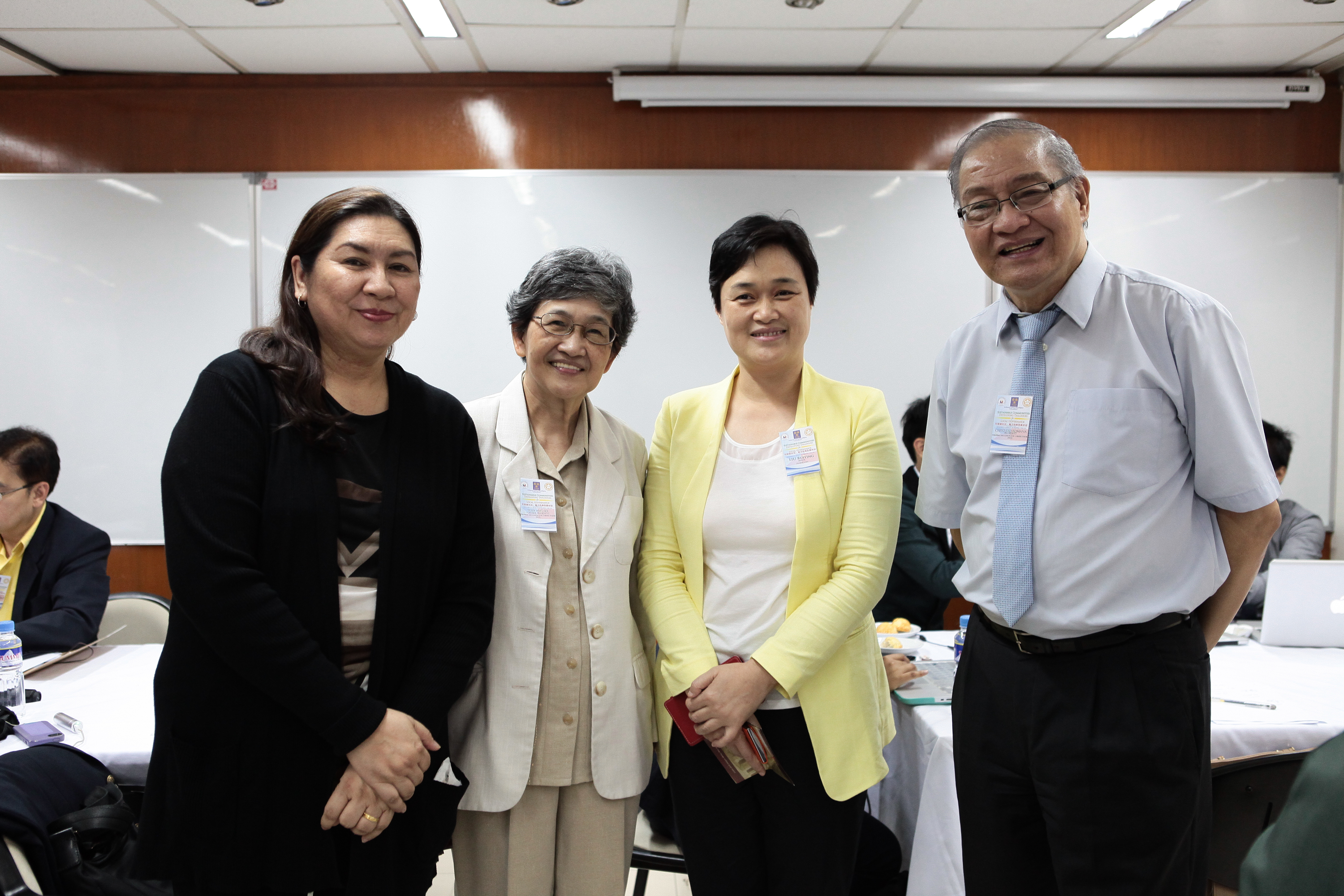
© Asia Pacific Pathways to Progress Foundation Inc.
From left to right: APPFI President Dr. Aileen Baviera, Ms. Teresita Ang-See of PACS, Mayor Liu Ruiying of Dexing City and PACS President Chito Sta Romana.
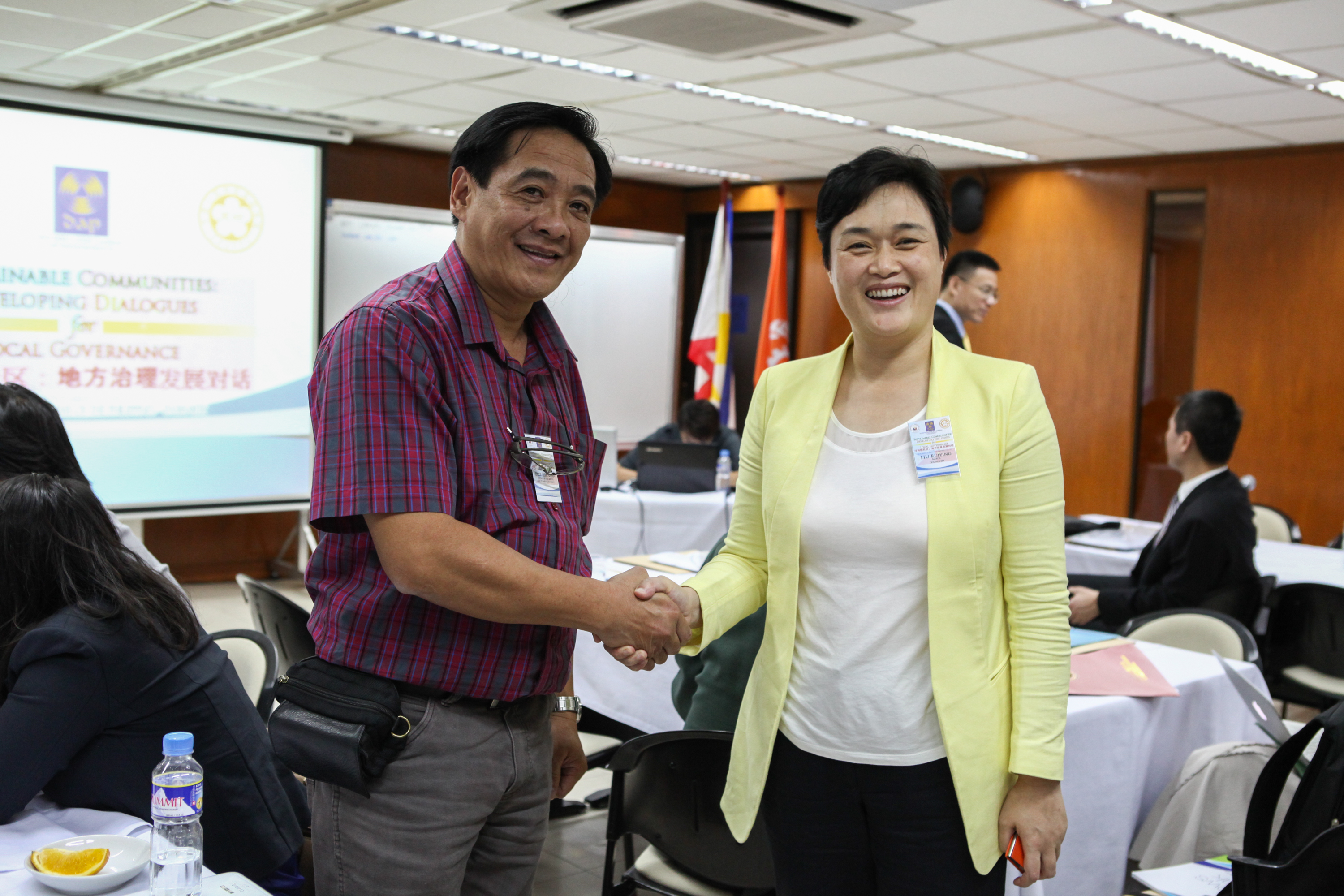
© Asia Pacific Pathways to Progress Foundation Inc.
Municipal Administrator Paul Cuyopan of La Trinidad, Benguet and Mayor Liu Ruiying of Dexing City, Jiangxi shaking hands as they discuss possible cooperation and future projects between the two towns.
